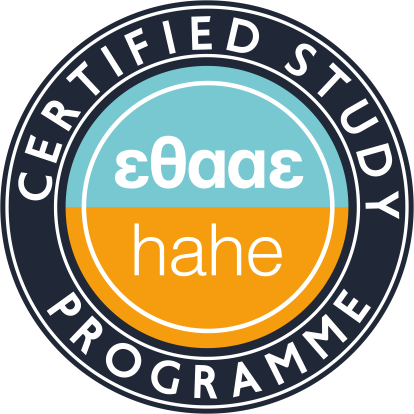Didactics of the Visual Arts in Early Childhood Education
Course Code (in greek): ΚΤ1380
ECTS Units: 6
Semester: 3, 4
Professor: Letsiou Maria
Course Description
The purpose of this course is to introduce Early Childhood Education students to the core concepts, principles, and teaching methods in visual art education, alongside the stages of children’s artistic development. The course explores the foundational values and philosophies of art education through the lens of its 20th-century history. Students will engage with the ideas of key art educators from that period and reflect on various teaching approaches used in preschool settings, such as modern teaching methods, children’s art, and school art. In addition, students will be introduced to 21st-century teaching approaches, including visual and material culture and exploratory art learning, to help them effectively incorporate contemporary art curricula into preschool activities and projects. The course also includes experiential studio art research, where students enhance their creative, artistic, and research abilities by producing visual artworks using a wide range of tools, materials, and artistic techniques.
Learning Outcomes
Upon completing the course, students are expected to:
- Understand the basic principles and content of contemporary visual arts education.
- Connect key teaching concepts, both popular and foundational, with the ideas of influential 20th-century art educators.
- Recognize the stages of children’s artistic development through their art works.
- Develop personal artistic skills in using materials, techniques, and artistic processes (both traditional and new technological media).
- Apply creative strategies of contemporary art to produce personal meaning in their works.
- Familiarize themselves with organizing art activities for preschool and early elementary school children.
Assessment:
Assessment consists of a written exam at the end of the semester, along with the presentation of artistic work (art portfolio and sketchbook) completed during the course. Attendance is required, as experiential projects take place during class to help students understand theoretical topics. A student is eligible to take the written exam only if they have completed 50% of the required artistic work (visual artworks and sketchbook). The final evaluation is the average of the grades from the artistic work and the final written exam. A passing grade in both components (artistic work and written exam) is required, with a minimum score of 5 out of 10.
Teaching Methodology
The course consists of weekly sessions, divided into two parts:
A) Theoretical part: Lectures are given, and students participate in group activities that involve study, exploration, and discussion of theoretical topics.
B) Studio Art Workshop: Students participate in visual art workshops where they explore and experiment with a variety of artistic materials, techniques, and processes (both traditional and new technologies).
Further information (e.g., evaluation methods) and course materials are available online on the course platform at https://eclass.uth.gr/courses/ECE_U_292/.


